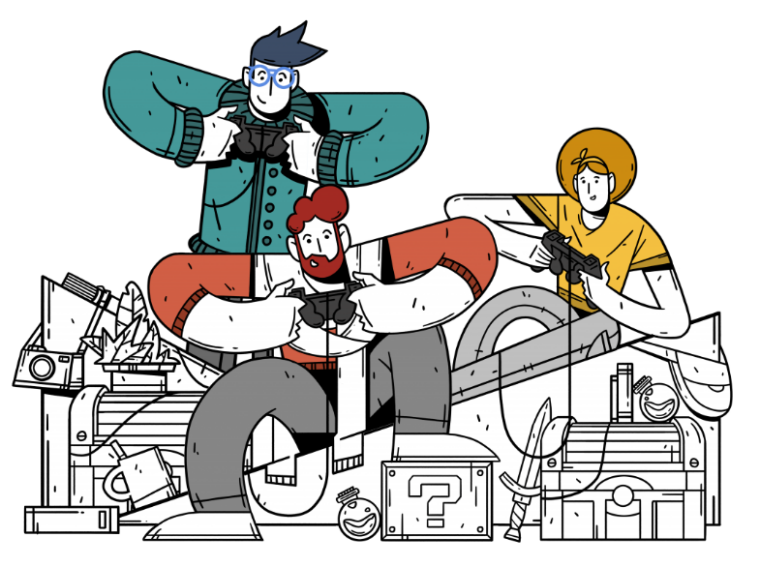Within the dynamic field of video games, inclusion has grown in importance. According to game creators and translation specialists, experiences that appeal to players from various backgrounds are becoming more important. This article examines how game translation supports diversity and representation in the gaming industry.
Beyond Language: The Power of Culturally Inclusive Game Localization
Localizing a game involves much more than just word translation. A thorough awareness of cultural quirks, customs, and sensitivities is necessary for inclusive gaming. Localization experts put in great effort to make sure that the game experience is both linguistically and culturally appropriate. Games become more than simply entertainment when they include various cultural components; they become a conduit for players from all over the globe.
Achieving cultural inclusion is not without difficulties, however. Teams tasked with localizing content strike a careful balance between preserving cultural authenticity and avoiding clichés or false portrayals. Giving gamers a genuine, immersive experience that captures the rich tapestry of global variety is the aim.
Breaking Stereotypes: Redefining Characters Through Inclusive Storytelling
Character and story reimagining is a potent component of inclusive gaming. It is the duty of game makers to confront and dispel cultural prejudices that might support prejudice. Creating stories that include people from a variety of backgrounds in positions that challenge stereotypes is a key component of inclusive storytelling. By providing players with realistic and good role models, this method not only helps to reflect cultures more accurately but also gives gamers a sense of empowerment.
In order to maintain the spirit of inclusive storytelling across many languages and cultures, localization teams are essential. Games may celebrate the distinctiveness of each culture while presenting stories that are universally relatable via the careful adaptation of speech and character interactions.
Global Voices, Local Accents: The Art of Authentic Dialogue Adaptation
Language is an effective medium for expressing cultural richness and authenticity. Beyond simple translation, inclusive game localization takes into account linguistic variances and regional accents. Games may provide players a more realistic experience by customizing speech to suit regional linguistic features.

To make characters seem real to players with a variety of language backgrounds, localization experts work with voice actors who are sensitive to the nuances of various dialects. The whole game experience is improved by this attention to detail, which also helps players feel more connected to the virtual worlds they live in.
Representation Matters: The Impact of Inclusive Graphics and Art Design
A crucial element of inclusive gaming is visual representation. A game’s visuals and artistic design greatly influence how players experience and relate to it. Character designs must be carefully considered during inclusive localization to ensure that they represent a range of races, body shapes, and gender identities.
In addition to increasing the representation of a diverse player base, games that place a high priority on inclusive visuals also help to subvert social conventions and expectations. The message that inclusive art design conveys is strong: everyone has a right to see a reflection of themselves in the virtual worlds they play with.
Cultural Sensitivity Training: A Standard in Game Localization Practices
As the demand for inclusive gaming grows, so does the importance of cultural sensitivity training for localization professionals. Understanding the intricacies of diverse cultures is a prerequisite for ensuring respectful and accurate representation in games.
Now, video game localization companies are increasingly incorporating cultural sensitivity training into their practices. This training equips professionals with the knowledge and skills needed to navigate the complexities of different cultures, fostering a more inclusive gaming landscape.
Community Engagement: How Inclusive Gaming Sparks Global Conversations
Beyond the virtual game environment, inclusive gaming has a significant influence. Games that are inclusive often serve as springboards for more extensive discussions on diversity and representation. Global gamers congregate on social media sites and in online gaming forums to talk about and celebrate inclusive gaming experiences.

Video game translation firms are at the forefront of influencing change as the desire for inclusion increases. Their responsibility to guarantee that games accurately depict a range of cultures and viewpoints enhances both the gaming experiences of individual players and the conversation around diversity in the gaming industry.
Video Game Localization Companies: Leading the Charge for Inclusivity
Behind the scenes, firms that localize video games have a significant impact on how inclusive gaming is shaped. Their knowledge plays a crucial role in overcoming cultural differences and allowing game creators to connect with players everywhere. The degree to which these businesses are dedicated to precise and considerate localization has a direct bearing on how well inclusive gaming projects perform.
To sum up, inclusive gaming represents a fundamental change in the way the industry approaches producing memorable and impactful experiences rather than just a passing fad. In order to ensure that different voices are heard, cultures are appropriately portrayed, and players from all over the world feel recognized and appreciated in the virtual worlds they inhabit, cooperation between video game creators and translation businesses is essential. Looking forward, the ongoing development of inclusive gaming portends a day where diversity and representation are essential components of gaming experiences rather than just desirable outcomes.

